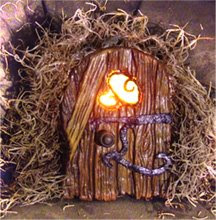I "googled" Hospice the other day. I had wanted to have a better handle on the bodily changes a person might go through towards the end of his life. This "need to know" seems to be some sort of emotional protective device I use, keeping me aware of even the slightest change in Hubby's health - so I can be prepared.
I found hospicenet.org and the following story - which helped me tremendously in accepting this Journey we Caregivers are on.
THE CAREGIVER'S JOURNEY
The caregiver has given time and love in ways that people see and respect, even if they do not fully understand. But the caregiver has received "gifts" from the dying person: trust and love of a kind rarely experienced, and the dying experience itself. It is all of this and something more that the caregiver receives. In trying to explain what it is about, one man offered the following analogy that he referred to as "The Journey."
Imagine helping a friend on a journey to a remote monastery perched on top of a mountain. As you begin your trip, the path is fairly clearly marked and the goal easily seen in the distance. But as you approach, the monastery is often obscured by the tops of trees in the forests through which you pass. And you say " if only we could get out of this woods, we would be able to see the monastery again and see where we're going." And as you continue the climb, the path fades and much is accomplished by guesswork. You call on your friend for help. After all, this is his trip and he should know what he's doing. But he becomes older and weaker and relies more on you moment by moment.
Things get worse. You lose the path and you are tired and hungry. But, he can not proceed alone and you can't leave him on the mountain while you return to the warmth and safety of home. So, you find a new reserve of strength, enough for both of you, and you continue up the mountain, for now it is your journey, as well. You look at yourself anew and find that you have grown older, become more mature like your friend, and you accept this as part of the mutual trip. And in accepting your role as guide you find that you are guided, that your friend, whose legs have crumpled beneath him by now, offers you wellsprings of courage and hope. You drink deeply, for you realize that if either of you are to make it to the top, it will need both of you guiding and supporting the other in ways constantly changing and unimaginable.
One day when you least expect it, the heavy cedar gates of the monastery are suddenly dead ahead. The trip had become the whole purpose, it seemed, and the monastery forgotten. But there it stands: Your friend's objective has been reached The door opens to admit your friend and, as if you had performed the ritual many times before, you hand your friend over the threshold. The door closes, and you stand there numb, alone, bewildered.
Out of habit you continue walking. It doesn't seem to matter in what direction, for each of the possible paths lead back down from the mountain.
The trip down seems easier than the trip up was. The mountain holds few surprises, now, and there is ample time to sit and ponder before reaching the valley below. And somehow in reviewing the trip with your friend, its moments of desperation and fear are overshadowed by the times of giving and accepting, of sharing and journeying together. Memory of the monastery fades and in its place stand crystal images of points along the upward trek. There was the time you picked him up and carried him across the rocks when his strength failed. And there was the time when you slipped and lost your grasp, but he held you up and supported you with the power of his mind. There was something special in those moments, something, which if you could string all of those images together in just the right order, that then, maybe then, you would understand.
As it is, you return to the valley a different person, quieter and stronger, knowing only that you have been a part of something .... holy. This friend shared with you his most personal possession, his death. And though you can't quite comprehend its true value, you find yourself hoping that you will have the ability to fully experience and share your final journey with another wayfarer to whom you can pass on crystal images.
Deep gratitude and celebration are the order of the day for those of us who are called to assist in this challenge. The suffering, remember, is found only in our refusal to let go, only when we refuse to go through the pain and move to the other side. We get through by going through. The rewards are wonderful: the joy and blessings that come from extending the self beyond its own comfort zone; the knowledge we gain of life and death; the love that is lost and found again on a higher plane; and the areas of awareness that are opened. Grief is a healing process to be welcomed and not feared, for when it is allowed to go its own course unobstructed, it will fill with wonder the void that the loss created.
Subscribe to:
Post Comments (Atom)









3 comments:
Well, I read it right thru, got a little teary eyed~ went to see if he's still breathing. All is well.
You're right, moving is more overwhelming than I thought it'd be. 20 yrs in one house raising a family.So... go get that massage ok?( That's what I'd be doing)
Well, I read it right thru, got a little teary eyed~ went to see if he's still breathing. All is well.
You're right, moving is more overwhelming than I thought it'd be. 20 yrs in one house raising a family.So... go get that massage ok?( That's what I'd much rather be doing)
Thanks for your post, Joy. I was teary-eyed too when I read this. I realize that not everybody is at that stage yet, (Hospice) but it is something we will have to face.
"The Journey" gave validation to how I've been feeling about this Caregiving experience. The helplessness, the wanting to turn around and go home and the part where he also "carries me with the power of his mind". That hit home too. His body is wasting away, yet his mind and love can keep me going on this journey.
In reading this story, I feel like a map has been handed to me; to navigate through the wilderness, but also to show me that there is a purpose to all of this.
Post a Comment